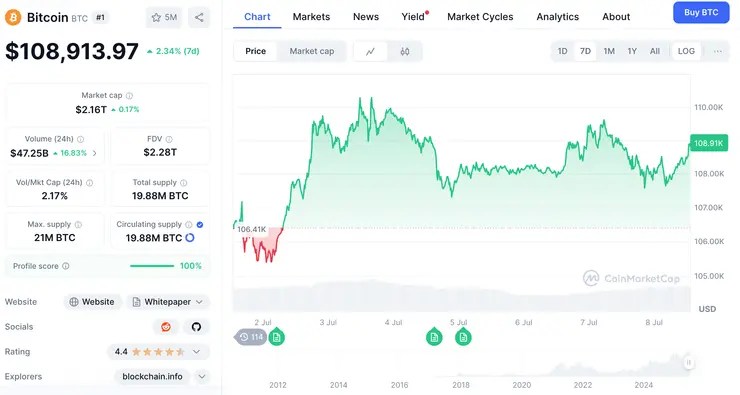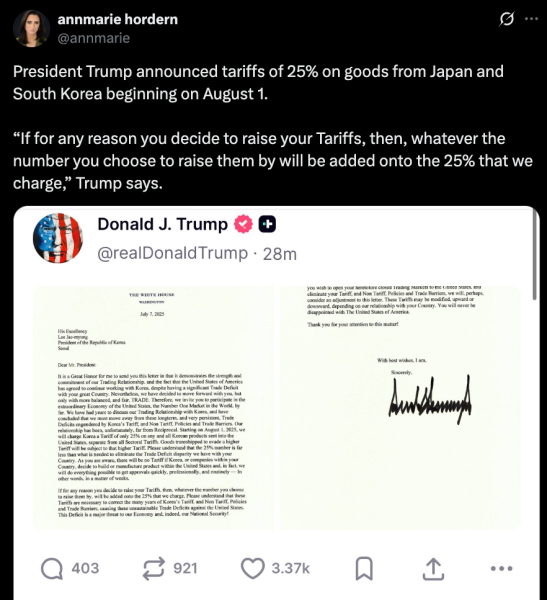How To Crypto 101: What is leverage, why is it dangerous and why do people use it?
Edit: sorry for typo in title!
Scroll down to the bottom for a TLDR.
As part of an ongoing series of educational posts I present to you my newest addition. In this article you will learn about what exactly ‘using leverage’ means and why it can ruin your day, week or life.
I see a lot of newer traders on here posting how they got destroyed using leverage. I don’t think many of these investors realize what they are getting themselves into the first time they try to stay afloat in these dangerous waters. I want to make a quick post about what you are actually doing when you use leverage.
What is leverage?
Leverage in crypto is a feature some non-US exchanges offer (Binance, Kucoin, Gate, etc) that allows you to borrow capital to trade crypto assets. This feature falls under the moniker ‘perpetual futures’ on these exchanges. Perpetual futures allow a trader use a fixed amount of money to gain a larger amount of exposure to an asset. The amount of exposure you get depends on two things:
· The amount of capital you are willing to put in
· The leverage multiplier you use
Trading fees and funding rates
There are also trading fees and a funding rate to consider in trading perpetual futures. For the sake of this article I will ignore those as they will distract from the overall concept. I will write an addendum to this article if people request more info on these in the comments.
Math behind using leverage
Many exchanges offer leverage multipliers up to 100x. This is kind of insane for a number of different reasons that I will go into in the next few sections.
For now, let’s assume that I have $100 and I want to trade $1,000 of ETH.
[amount of exposure desired] / [capital] = [leverage multiplier]
$1,000 / $100 = 10
This means that I will need to use a leverage multiplier of 10x to accomplish my goal. I can choose to take either long or short exposure to ETH in this case. If I choose to take long, I am making a (very risky) bet that ETH will go up. If I choose short, I am making an (also very risky) bet that ETH will go down.
Let’s assume I’m bullish and go long on this trade. Since I have $1,000 of exposure, if ETH goes up 5% I will make $50. Here’s the math behind that:
[total exposure] + [percent price has increased since entry] = [total exposure + profits]
$1,000 + 5% = $1,050
You can also write 5% as a 1 plus a numeric multiplier; in this case it would be 1.05 and the equation would look like this:
$1,000 * 1.05 = $1,050
If I close my trade at the exact point that ETH is up 5% I will get my original $100 back (minus the aforementioned trading fees and funding interest which are NOT a part of my math here for simplicity) plus the profit on my trade which in this case is $50. This means that my total amount returned will be somewhere around $100+$50, or $150. Sounds too good to be true, right?
There is a catch.
Why is leverage dangerous?
You’ve just read about a very good scenario for an ETH trader. Our auspicious trader effectively made 50% on their $100. They bet that the price of ETH would rise and they were correct.
What happens if they were not correct? Let’s use the same example trade that we used before.
Let’s assume we again put $100 into a 10x leveraged long ETH trade which gives us $1,000 of exposure. This time, the price of ETH drops 7%. All of a sudden our $1,000 of exposure is only worth $930. We understandably feel we have made the wrong move and decide to close the trade.
That $70 needs to be paid back which means it has to come out of the original $100 we put down as collateral.
[total original capital] - [losses on total exposure] = [remaining capital refunded on closure of the trade]
$100 - $70 = $30
In this scenario we only receive $30 of our original $100 back. We have now lost a whopping 70% of our original capital on this bet even though the price of ETH has only gone down 7%.
Yikes.
Can I lose more money than I put up as collateral?
One of the questions I see asked frequently is ‘can I lose more capital than I initially put into a leveraged crypto perpetual futures trade?’
*** Edit to include a great point made by u/AceStyle322 in the comments
The answer is no provided you keep your trade type set to Isolated mode. In Cross mode you can potentially lose up to everything in your margin account. Different exchanges have different verbiage for this so make sure to do some research. You set this before you open your position. It's also a good idea to check it after you have created your trade to make sure it was set up correctly. In Isolated mode your losses will be limited to what you put up as capital for that trade only. Either way, crypto exchanges will not be able to track you down and collect more money from you which is why they liquidate your trades when your capital is gone. Read on to find out about liquidation
*** End edit
In crypto your leverage multiplier acts as a sort of stop loss. You will never lose more than you put down as collateral in Isolated mode. What happens to prevent this is something called ‘liquidation.’
Getting liquidated occurs when your losses on a perpetual futures trade meet or exceed the capital you put into the trade. Let’s look at another example.
Let’s say we put $100 into a long ETH trade with a multiplier of 20x which will give us $2,000 of exposure to ETH. I want to point out again that this is extremely risky and I don’t think there is ever a time or place to use this kind of multiplier.
If ETH goes down 5%, we lose:
[total exposure] * [percentage of entry price lost] = [losses]
$2,000 * 5% = $100
Our original capital is $100 and we have lost $100. At this point the exchange will automatically sell the rest of our position and take possession of the remaining $1900.
We owe the $100 we lost which comes out of our original $100 capital which means we are left with $0. We have lost everything we put into this trade and since the exchange has closed our position there is no way we can get that $100 back, even if the price rises after this initial drop.
Unless we put in more capital we will not recover our initial $100.
In practice most exchanges will build a little padding into their liquidation price because the liquidation process closes your position at market price. Market price means your your position closes at the best price available on the order book which may or may not be wide enough to cover your losses. The exchanges doesn’t want to lose money so they will liquidate you at a slightly higher price than our math suggests. In the example above we can assume that if ETH loses around 4.8% we will get liquidated.
This about this for a minute. If you use 100x leverage as some exchanges allow, a $100 long ETH bet will get you an insane $10,000 of ETH exposure. If the price of ETH drops 1% you will lose your $100 capital and it will be gone forever.
Here is the math to figure out roughly where you will get liquidated:
100 / [leverage multiplier] = [percentage you can lose before getting liquidated]
If I use a 6x multiplier the equation looks like this:
100 / 6 = 16.66%
To calculate the actual liquidation price of your trade if you go long the formula looks like this:
[entry price] – [percentage of entry price you can lose before getting liquidated] = [liquidation price]
This means that if I enter into a 6x leveraged long MATIC trade at $1 I will get liquidated when MATIC reaches:
$1 – 16.66% of $1 = ~$0.833
For shorting the equation is the same except you have to add the percentage of your entry price instead of subtracting it:
[entry price] + [percentage of entry price you can lose before getting liquidated] = [liquidation price]
If I took a short position on MATIC with 6x leverage and a $1 entry price I would be liquidated when MATIC reached:
$1 + 16.66% of $1 = ~$1.166
Knowing how dangerous this is why would anyone use leverage?
That’s a great question. People like to gamble. Some very experienced traders use leverage to make educated guesses at what the market will do next. Do these traders get their asses handed to them sometimes? Absolutely.
I’m an experienced trader in crypto and other markets and I do mess with leverage when I am confident about how a market is going to move. The most I have lost using leverage in one day is around $30,000 which is around three times the most I have made in one day using it. I honestly wanted to go off myself that day but I stepped away from my keyboard, went outside, played with my daughter and had a date night with my wife. It took around two months but I eventually recovered.
TLDR
Smart people make bad choices all the time. No one knows what the news or market sentiment will be. My advice to you is to stay away from leveraged trades. That being said, there is a difference between yoloing a shitcoin at 100x and using 2x on BTC or ETH after a major market move to catch a small correction.
Do your research, don’t use more capital than you can afford to lose and if you are unsure about what you are doing do not use leverage.
For more informative how to crypto posts please see:
*** Edit - some commenters have rightfully stated that there are strategies you can implement to use leverage safely. My next how to crypto article will likely cover one or more of these strategies.
The best way to think about leverage is that is a tool. You know what else is a tool? A table saw. A table saw can help you make beautiful furniture if you know how to use it.
If you don't know how to use a table saw it's a lot more likely that you will chop your fingers off and have no furniture to show for it. The same concept applies to leverage. It is a valuable tool if used correctly and separately it's dangerous if used improperly.
Novice traders should not use leverage without understanding risks and proper implementation and I will stand by that statement.
*** Edit 2: wow thank you to u/Coeruleus_ and u/veritas1975 for the generous awards. You guys totally didn't have to do that but it is very appreciated.
[link] [comments]

You can get bonuses upto $100 FREE BONUS when you:
💰 Install these recommended apps:
💲 SocialGood - 100% Crypto Back on Everyday Shopping
💲 xPortal - The DeFi For The Next Billion
💲 CryptoTab Browser - Lightweight, fast, and ready to mine!
💰 Register on these recommended exchanges:
🟡 Binance🟡 Bitfinex🟡 Bitmart🟡 Bittrex🟡 Bitget
🟡 CoinEx🟡 Crypto.com🟡 Gate.io🟡 Huobi🟡 Kucoin.



















Comments